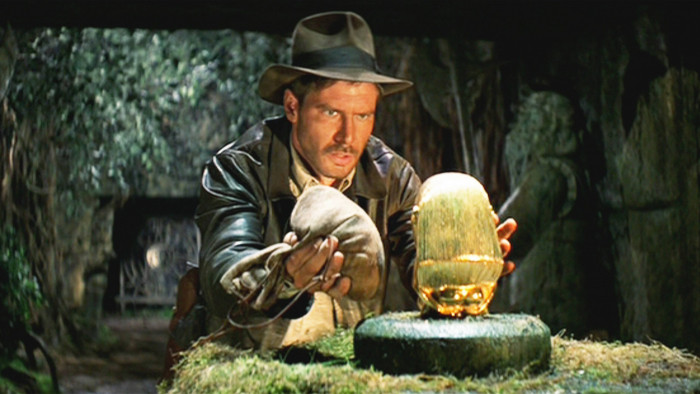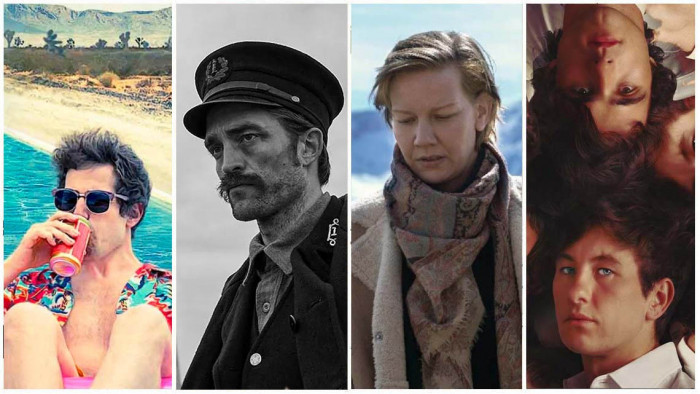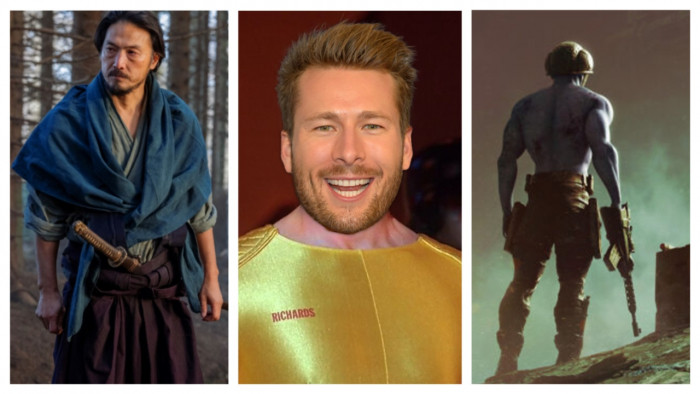Sat in an armchair is the best-kept secret in British cinema. No, it’s not Christopher Nolan’s magic formula to box-office success — it’s Paddy Considine, multi-award-winning actor, writer and director, and a man many people would fail to recognise even if he stood in front of them and said, “Hello, I’m Paddy Considine.”
The enigma of celebrity is that talent doesn’t correlate with recognition. If it did then ‘Jedward’ would be a mere typo and Considine a global icon, as evidenced by a swathe of critically-acclaimed performances in independent masterpieces, most notably 1999’s Shane Meadows-directed A Room For Romeo Brass and 2004’s Dead Man’s Shoes, the latter of which Considine wrote.
His face won’t get any more familiar with his latest venture, either, because Tyrannosaur, Considine’s feature-length directorial debut, finds him staying well off-screen.
“It was incredibly easy not to get in front of the camera,” he says. “There’s one point in the film where it’s just my voice and even that I was going to dub out. I want to tell stories. I’ll act here and there, but I’m writing and directing more films. It’s not just a one-off. I want a career as a director.”
There’s a good chance he’ll get what he wants, because Tyrannosaur is one of the finest debuts you’ll ever see. An extension of his 2007 Bafta-winning short film Dog Altogether, it brings together Peter Mullan and Olivia Colman, as a man battling a violent inner-rage and a woman struggling to consolidate her Christian faith faced with the horrific reality of her marriage.
For anyone who might be thinking, “Ooh, Sophie from Peep Show’s in it, it must be funny,” think again. It’s no barrel of laughs. It’s barely an egg cup. Like his friend Meadows’ work, you experience as much excruciating pain as exquisite tenderness. Considering, too, the stark brutality of Dead Man’s Shoes and the adage ‘write what you know’, it makes one wonder what kind of life Considine has led.
STRAIGHT TALKING
“It’s not autobiographical,” he explains, “but it’s the world that I grew up in and those worlds are real. When people complain how grim this film is or the northern landscape looks, well, that’s how it looks. If you deny that these people exist, then you’re seriously deluded, especially in light of the recent riots where people are underprivileged and want to fight back because they’ve had enough. These worlds exist, these people exist.
“This film is a love story. I never wanted to shock anybody. But don’t deny that extreme things happen and don’t complain that my film’s got extreme moments in it. I can’t second guess what people are going to like and dislike. That’s the mistake everybody makes and that is why we get so many sh*t films.”
Considine clearly pulls no punches, which seems to make him a bit uncomfortable. His unshaven face is topped with thick, black, slicked-back hair, and he rarely makes eye contact; sliding down in the chair, his left leg crosses over his right, causing his body to twist away slightly.
“That was a silly thing to say about the riots,” he says, on reflection. “You know, people got killed. I’m not qualified to really talk about it, especially not now. I don’t know why I said that.”
The ‘not now’ is significant. Considine grew up on a council estate in Burton-upon-Trent, the town where he still lives, and while he’d never claim some kind of ‘Staffordshire favela’ upbringing, his experiences must have influenced his work, as can be said of a lad growing up down the road in Uttoxeter, Shane Meadows. The two met as teenagers on a performing arts course at Burton College, started a band (the “short-lived” She Talks To Angels, although Considine currently fronts another group, Riding The Low), and, although neither graduated (Considine later got a first-class photography degree from Brighton University), they formed a friendship that would later bear fine fruit.
“I always knew that I wanted to be involved in film,” he says. “I tried acting in things as a teenager, but they were just silly school plays. No one would have seen me and gone, ‘Watch out for this kid.’”
That, however, is exactly what did happen in 1999, when Meadows gave a 25-year-old Considine his first acting job as the hilarious-cum-psychotic Morell in A Room For Romeo Brass (because, he claims, Meadows “found me funny and I was one of his friends”).
It opened a can of very talented worms, with Considine becoming a critics’ favourite via low-budget, high-praise productions such as Last Resort, In America, Channel 4’s Red Riding, and, most notably, that brilliant collaboration with Meadows on Dead Man’s Shoes. So, when it came to Tyrannosaur, did he take any directing tips from his old buddy?
“Not really,” he says with little hesitation. “I had to make my own film. I’m my own man and I had my own things to get off my chest. As far as being a part of the process, of being on set, I’ve learned a lot, but there were no tips. Shane hasn’t even seen the film.
“I think people have this idea that we’re on the phone to each other all the time, but it’s not like that. I love him and he’ll always be one of the most important people I ever met in my life, but you don’t need someone’s presence to know that they are always there. Though I’d bet my right arm that we’ll make a film together in the next 10 years.”
ROOTED IN REALITY
That film is far more likely to be in Leicestershire than LA. In truth, when it comes to explaining Considine’s diminutive Hollywood career (a small part in 2005’s Cinderella Man and being guided round Waterloo Station by Matt Damon in 2007’s The Bourne Ultimatum), it has little to do with a lack of opportunities.
It could have something to do with his Asperger’s syndrome, which was only diagnosed last year. This, he has said, leaves him with “a debilitating sense of detachment” from people and places, and makes parts of acting, such as being directed, difficult. However, it definitely has something to do with the fact that La La Land is simply not a place of which he’s very fond.
“There’s no Hollywood career,” he explains. “I don’t have the ability to manoeuvre into positions to get roles like people do in Hollywood. I don’t understand it. It’s got no time to nurture talent. I’m not much use in those big numbers. I don’t come in a package that’s easily digestible. I don’t think people know how to use me.
“As for directing there, I don’t have the temperament to deal with lots of people enforcing their ideas on me. I think that, above a certain budget, there’s too much interference. I’ve seen it up close and it’s not good. Everyone in Hollywood is afraid because it’s run by accountants who don’t have an artistic bone in their ribs. They’ve got to make money, but in their fright you get all this turgid sh*t being piled out every summer that people go ape-sh*t for. I find it boring.”
That’s an adjective that can hardly be applied to the man sat in the chair; a reason why, while Britain is rightfully proud of the likes of Tom Hardy and Christopher Nolan conquering America, perhaps we should keep Considine for ourselves.
Tyrannosaur is at selected cinemas nationwide from 7 October
(Image: Rex Features)
Latest
Related Reviews and Shortlists


The 10 best war movies of the 21st century









